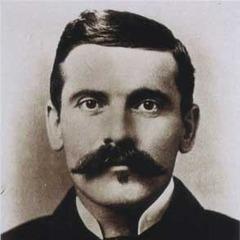Woe Quotes - Page 3
When one is past, another care we have; Thus woe succeeds a woe, as wave a wave.
Robert Herrick (1869). “Hesperides: The Poems and Other Remains of Robert Herrick Now First Collected”, p.16
Chords that vibrate sweetest pleasure Thrill the deepest notes of woe.
Robert Burns, P. Austin Nuttall (1866). “The poetical works of Robert Burns”, p.214
Livy (2006). “The History of Rome”, p.394, Hackett Publishing
'Paradise Lost' (1667) bk. 9, l. 780
Geoffrey Chaucer, Thomas Tyrwhitt (1861). “The Canterbury Tales of Chaucer: To which are Added an Essay on His Language and Versification, and an Introductory Discourse, Togeher with Notes and a Glossary”, p.117
Woe to these people who have no appetite for the very dish that their age serves up.
Andre Gide (2017). “Pretexts: Reflections on Literature and Morality”, p.101, Routledge
This day's black fate on more days doth depend; This but begins the woe, others must end.
William Shakespeare, Joseph Dennie, Samuel Johnson, George Steevens (1809). “The plays of William Shakespeare ...: With the corrections and illustrations of various commentators”, p.303
Will Durant (2012). “Story of Philosophy”, p.12, Simon and Schuster
Samuel Taylor Coleridge (1836). “The Poetical and Dramatic Works of Samuel Taylor Coleridge: With a Life of the Author”, p.18
Hides from himself his state, and shuns to know That life protracted is protracted woe.
'The Vanity of Human Wishes' (1749) l. 255
Samuel Daniel (1718). “The Poetical Works of Mr. Samuel Daniel, Author of the English History: To which is Prefix'd, Memoirs of His Life and Writings”, p.105
Joseph Alleine (1824). “An Alarm to Unconverted Sinners”, p.170
Geoffrey Chaucer (2013). “Delphi Complete Works of Geoffrey Chaucer (Illustrated)”, p.530, Delphi Classics
Adam Clarke (1837). “The Holy Bible, containing the Old and New Testaments”, p.238
Mercy is not itself, that oft looks so; Pardon is still the nurse of second woe.
William Shakespeare (2012). “Measure for Measure”, p.27, Hackett Publishing
When we our betters see bearing our woes, We scarcely think our miseries our foes.
William Shakespeare (1805). “The plays of William Shakespeare : accurately printed from the text of the corrected copy left by the late George Steevens: with a series of engravings, from original designs of Henry Fuseli, and a selection of explanatory and historical notes, from the most eminent commentators; a history of the stage, a life of Shakespeare, &c. by Alexander Chalmers”, p.419
William Shakespeare (1767). “The Works of Shakespeare: Much ado about nothing. All's well that ends well. The life and death of King John. The life and death of King Richard II”, p.274

![It would have been inconceivable that Eva [Braun] would ever have criticized [Adolf Hitler] to me. To his face? Yes, she would, but to me or anybody in our family? Never. And woe to anybody who dared criticize him to](http://cdn.quoteddaily.com/images/gretl-braun/it-would-have-been-inconceivable-that-eva-braun-would-ever-have-criticized-adolf-hitler-to-me-to-his-face-yes.jpg)





